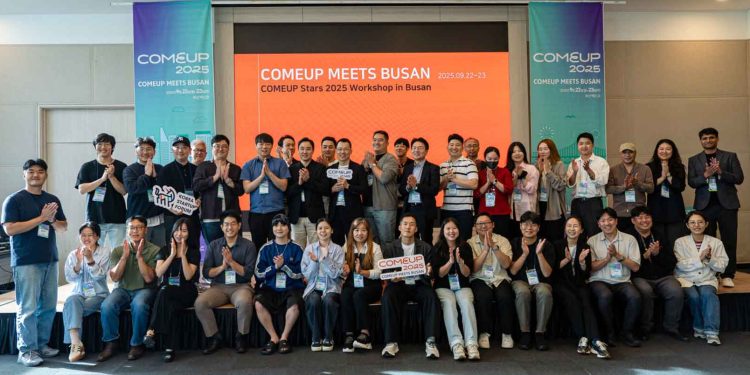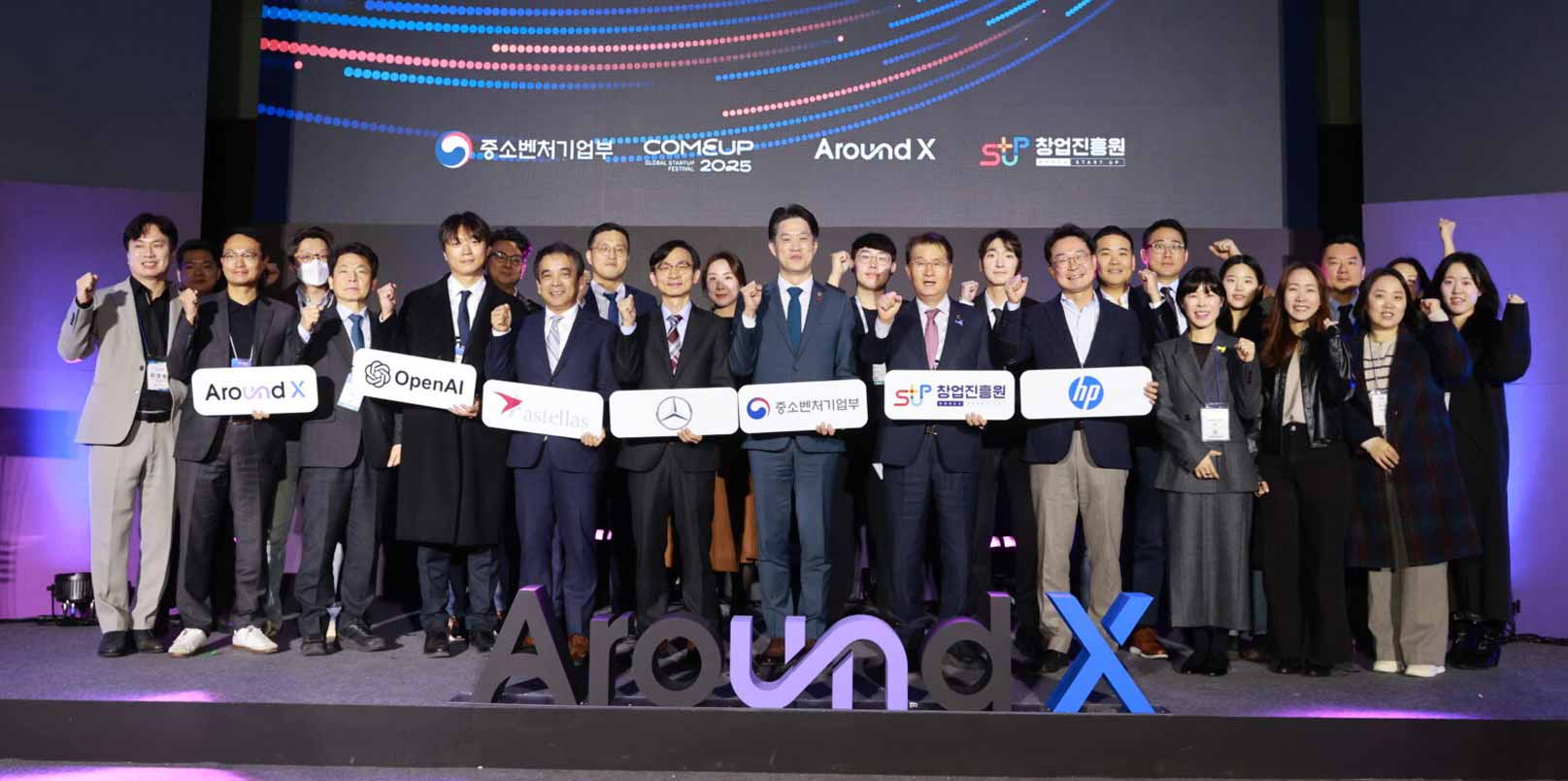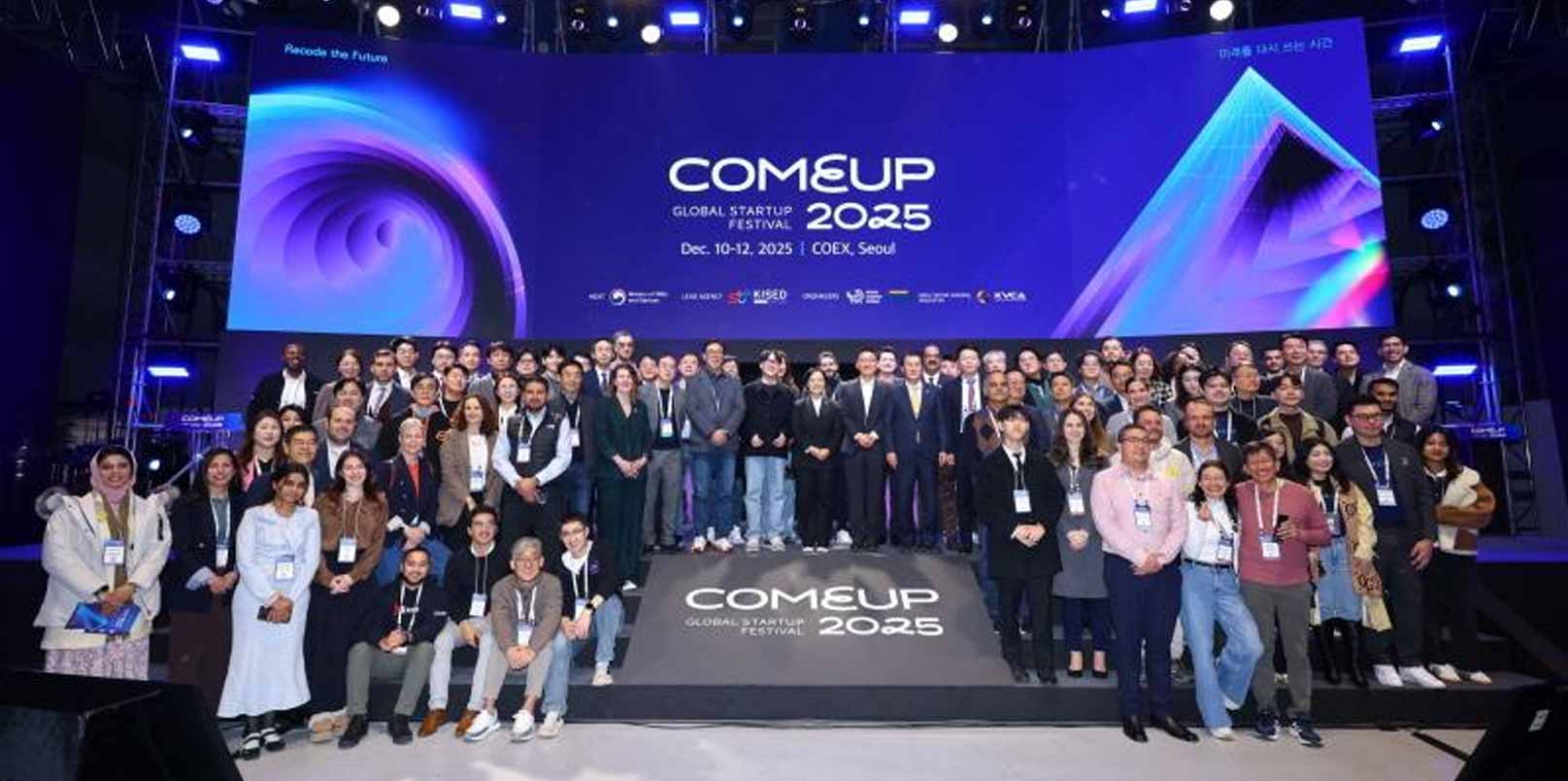Korea is moving its flagship startup showcase beyond Seoul to build stronger global ties. The recent COMEUP Meets Busan program tested investor readiness, connected founders with mentors from the United States, Europe, China, and Japan, and highlighted how regional hubs can power international growth. This workshop offers an early look at Korea’s next wave of globally ambitious startups — a prelude for global investors and founders eyeing Asia ahead of the COMEUP 2025 main event.
Busan Workshop Brings Global Mentors and Capital Focus Ahead of COMEUP 2025
The Korea Startup Forum (KOSPO) hosted “COMEUP Meets Busan” from September 22 to 23 at BEXCO, offering a pre-event platform for this year’s COMEUP Stars 2025.
Twenty startups selected as official COMEUP Stars joined six Busan-based startups for two days of intensive mentoring, networking, and investor-readiness training. The initiative was designed to strengthen capabilities before the main COMEUP event in Seoul this December.
Why Busan Matters in Korea’s Startup Expansion Strategy
The program functioned as a preparatory workshop for COMEUP 2025, but its significance goes beyond rehearsal. By locating the session in Busan, organizers highlighted Korea’s strategy of regionalizing its startup ecosystem while connecting founders to global networks.
Over 60 participants—including mentors from Pen Ventures (U.S.), E-Land China EIV (China), Shinhan Futures Lab Japan (Japan), and Start2 Group (Europe)—guided startups through discussions on partnerships, localization, and investment strategies.
Participants also toured Yeongdo café street, home to local brands Momos Coffee and Moomyeongilgi, and visited the Busan Workation Center.
The mix of global mentoring and local ecosystem exposure reflected Korea’s dual approach: strengthening regional collaboration while preparing startups for international expansion.
Global Mentors on Market Entry and Localization
Panel sessions emphasized that market entry requires more than capital. Oh Eun-jin, CEO of INABOOTH, drew on her China market experience:
“It is critical for startups to build alliances with local players and institutions and to leverage infrastructure and investment support strategically.”
Kim Nam-guk, Director at E-Land China EIV, acknowledged Korea’s strengths while urging bolder moves:
“Korean startups are globally competitive in content and detail, but they must advance into hubs like Shanghai and broaden ties across Taiwan and Japan.”
KOSPO Chair Han Sang-woo framed the program as a turning point:
“COMEUP Meets Busan has created a platform for this year’s COMEUP Stars to begin their global growth journey. We expect this program to strengthen overseas expansion capabilities and sustain growth through collaboration and networks.”
Strategic Lessons for Korea’s Startup Ecosystem
The workshop confirmed several ecosystem-level priorities:
- Investor Readiness: IR presentations tested founders’ ability to communicate ideas effectively to global investors.
- International Mentoring: Structured guidance linked startups to market-specific expertise in the U.S., Europe, China, and Japan.
- Regional Collaboration: Involving Busan startups showed that Korea’s innovation push extends beyond Seoul.
- Global Scaling: Stepwise mentoring—online group sessions in November, one-on-one mentoring through December—positions founders for international market entry.
This program showcases that South Korea is investing not only in funding but also in the capability infrastructure needed to scale companies into global markets.
COMEUP 2025: Expanding Cross-Border Opportunities
The main event, COMEUP 2025 will run on December 10–12 at COEX in Seoul.
This event is hosted by the Ministry of SMEs and Startups and managed by the Korea Institute of Startup & Entrepreneurship Development (KISED), with Korea Startup Forum (KOSPO), the Korea Venture Business Association (KOVA), the Korea Venture Capital Association (KVCA) as co-organizers, and beSUCCESS as media partner.
This year’s event will focus on expanding cross-border partnerships, attracting international venture capital, and creating structured pathways for global startup expansion.
The COMEUP 2025 workshop in Busan has already demonstrated that sustainable global success for K-startups requires a combination of regional collaboration, international mentoring, and deliberate localization strategies.
Korea’s Strategic Bet on Global-Ready Startups
In the end, COMEUP Meets Busan serves as more than just a regular a side event. It was a signal of how Korea intends to transform its startup ecosystem into a global venture hub—by blending regional vitality with global connectivity.
The program signaled to founders, investors, and policymakers observing Korea that the country’s startup strategy is becoming more systematic, globally relevant, and investor-ready ahead of the December summit.
– Stay Ahead in Korea’s Startup Scene –
Get real-time insights, funding updates, and policy shifts shaping Korea’s innovation ecosystem.
➡️ Follow KoreaTechDesk on LinkedIn, X (Twitter), Threads, Bluesky, Telegram, Facebook, and WhatsApp Channel.






